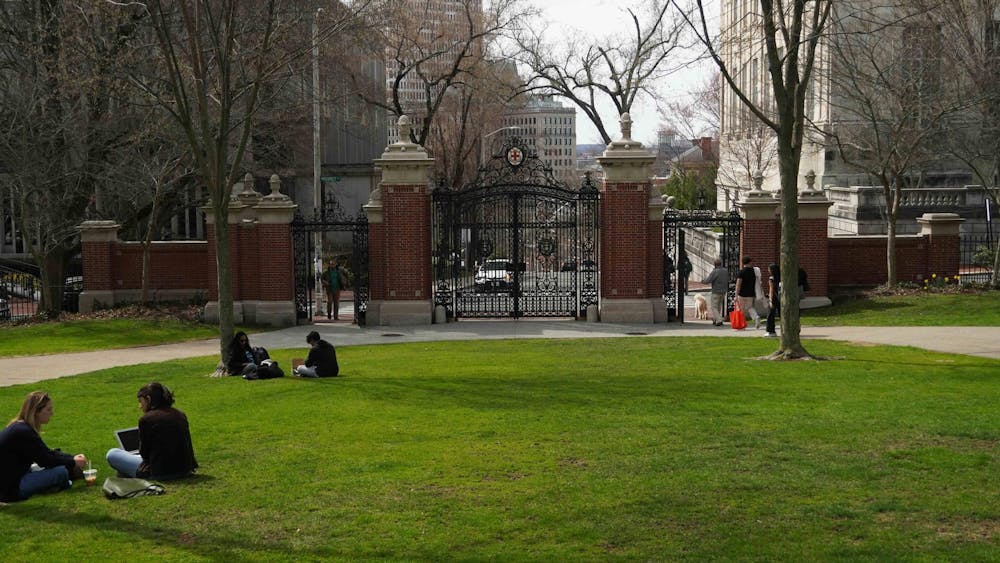Brown is cutting ties with the Choices Program, a long-running high school history curriculum used by over a million students nationwide, citing the program’s financial challenges that could not be effectively managed with existing University resources.
In a Friday Today@Brown announcement, Provost Francis Doyle wrote that the program, founded in 1989, had been facing “financial and staffing challenges” and a weak future sales outlook.
The Choices Program was launched as an outgrowth of Cold War-era educational research and has been housed in Brown’s history department since 2018, according to the program’s website. Since its launch, the program’s curriculum catalogue has grown to include over 40 units, with topics ranging from the American Revolution to the Syrian Civil War as well as a series on current events. According to the program’s website, its materials are now used each year by around a million students.
University administrators started working with leaders in the history department in summer 2024 to “assess the financial and organizational status of the program and to review possible pathways forward,” Doyle wrote in the announcement. This process accelerated as a result of the University’s goals to reduce its $46 million operating deficit and amid threats to federal funding, he noted.
“While Choices has enjoyed a long history of providing content to teachers and school districts across the country, a detailed assessment of the program’s finances and organization has made clear that it is no longer economically viable in its current structure at Brown,” Doyle wrote, noting that the program’s expenses had exceeded revenue in recent years.
The program’s materials on Israel and Palestine have also attracted a steady stream of criticism in recent years. In March, the Institute for the Study of Global Antisemitism and Policy released a report accusing Choices of “foreign influence” that has promoted “anti-Israel bias” in its curriculum materials. Brown has disputed these claims.
The decision to pull support from Choices is all but certain to eliminate access to its digital materials, according to University Spokesperson Amanda McGregor and several program staffers.
McGregor added that the employment of the program’s eight full-time staff members will “end” on June 30, once the University withdraws its financial support.
Program staff and affiliated faculty were informed that Brown was withdrawing support from the program on April 10 — one day before Doyle’s University-wide communications. In interviews with The Herald, faculty and staff involved in the program said they felt blindsided by the decision.
“My reaction was shock,” said Associate Professor of History and East Asian Studies Rebecca Nedostup, the program’s faculty director.
Jazz Carlson ’25, a program assistant, described feeling “disappointed,” adding that he believes “Brown is made better by its association with the Choices Program.”
“We were very surprised, perhaps even shocked, by the immediacy of the decision and the unexpected nature of the totality of the decision,” said Assistant Director of Curriculum Development Kevin Hoskins PhD’12 MA’05, who has worked with the program for six years.
“Those of us that are on the board — and speaking for myself here, at least — were shocked by the timing,” said Associate Professor of History Daniel Rodriguez, who sits on the Choices Advisory Board. “I feel like Choices is one of the most important things that Brown University does.”
In an email to The Herald, McGregor wrote that notification to staff followed months of discussions between University administrators and history department leadership.
“Personnel decisions are shared with staff and announced after thoughtful consideration of many factors, and the approach to the communication to staff for this program was not uncommon,” McGregor wrote.
In interviews, Hoskins, Nedostup and Rodriguez each described the curriculum program as historically self-sustaining, relying on funds from licensing fees to support staff and curriculum development costs.
The program, Rodriguez added, “has never once taken a penny from Brown University, but has been self-funding throughout the whole process.” He explained that when the program’s expenses have exceeded revenues, Choices has historically dipped into reserve funds accumulated during years with excess revenue.
The University did not respond to questions about the program’s reliance on University funds. But McGregor wrote that the decision to cut the program is “exclusively financial.”
But Rodriguez argued this downturn does not warrant “the killing of a 30-year program that has provided cutting-edge, excellent and deeply-researched historical curricula” for students nationwide.
Nedostup and Hoskins said in interviews that the program’s end would have an immediate impact on thousands of students and teachers nationwide.
Nedostup said she was “devastated to think about the effect, not only first and foremost on the staff, but also on the many educators that rely on Choices materials for their classes.”
In an email to The Herald, Mimi Stephens, the program’s director of sales and professional development, wrote that she had received messages expressing disappointment from longtime users of the program’s materials.
“Few happenings in my 24-year career teaching high school history have so confounded my sense of what is right and good, but word of the demise of Choices has caused the global community of history teachers to be saddened,” former history teacher Tom Brennan wrote in an email he sent to Stephens and obtained by The Herald.
McGregor wrote that the University notified educators of the change last week in order to enable “teachers and school districts using Choices curriculum to complete the current school year without the need for changes to teaching plans.”
“To cut it off now, while there have been such attacks on how we teach history, is a bit of a gut punch,” Rodriguez said.
“We care immensely about the program, immensely about its content, and I think we hope to preserve it in some way, shape or form,” Hoskins said.
Ethan Schenker is a university news editor covering staff and student labor. He is from Bethesda, MD, and plans to study International and Public Affairs and Economics. In his free time, he enjoys playing piano and clicking on New York Times notifications.





